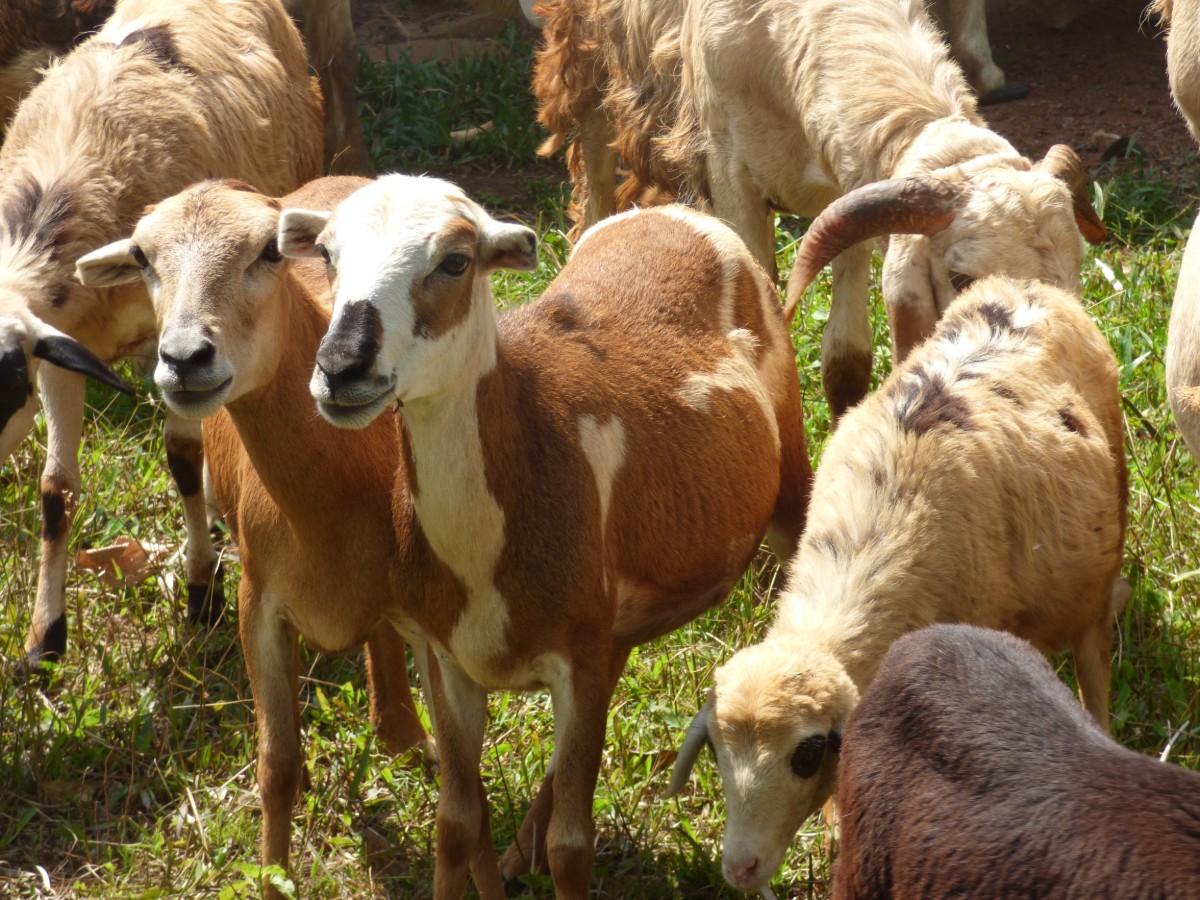


PVS Congo Brazzaville 2019
Dr. N’Kaya Tobi at the PVS mission launch. Picture (c) B. Lafia (oie) 2019.
At the end of January 2019, the Republic of the Congo welcomed its first ever evaluation mission as part of the World Organisation for Animal Health’s (OIE) Performance of Veterinary Services (PVS) Pathway with the support of the EBO-SURSY project.
In the words of Dr. N’Kaya-Tobi, the country’s Director General of Livestock and Delegate to the OIE, “this PVS evaluation mission gives an external view of our animal health system and the functioning of our Veterinary Services in order to understand their strengths and weaknesses.” Indeed, the evaluation mission phase is one of the essential components of capacity building of national Veterinary Services and the larger PVS Pathway.
As an evolving, cyclical process, the voluntary PVS Pathway encourages continuous learning and improvement within national Veterinary Services throughout its four stages – orientation, evaluation, planning and targeted support. This assessment-based system also aims to raise awareness about and support national Veterinary Services’ capacity to comply with OIE International Standards.
PVS
At the evaluation stage, the established methodology includes an external expert-led, multi-week mission that reviews all available written materials, policies, and operating procedures; meets with various stakeholders ranging from government ministers to rural communities raising livestock; dedicates significant time to assessing field operations, including in remote areas; and visits key facilities like laboratories and slaughterhouses. The final outcome of this visit is a PVS Evaluation Report that objectively rates the performance of the Veterinary Services for 47 Critical Competencies. The document findings are endorsed by the host country, which decides whether it should be made available publicly or not. To date 144 countries have benefitted from PVS evaluation missions, including 52 African countries.
Equipment in a laboratory visited by the Evaluation Mission. Picture (c) B. Lafia (oie) 2019.
With its focus on aligning the quality of all countries’ Veterinary Services and measuring their progress against a set of objective criteria, the PVS Pathway examines each country’s unique challenges and advantages to support the Veterinary Services’ continuous improvement, even in low resource settings.
As Dr. N’Kaya noted, “the results of this mission will be used as a guide for prioritising reform actions by the Veterinary Services’ management team. We are also committed to undertaking those activities that do not require significant financial resources.”
PVS Congo Brazzaville 2019
The evaluation team meets with veterinary staff at Brazzaville Airport. Picture (c) B. Lafia (oie) 2019.
From a broader perspective, reinforcing coordination with other sectors, such as the Ministry of Health and the Department of Wildlife and Protected Areas, is a key priority under the Republic of the Congo’s commitment to the One Health approach. In this regard, the participation of the OIE’s Tripartite partners, the World Health Organization (WHO) and the Food and Agriculture Organization of the United Nations (FAO), was integral to the success of this evaluation mission.
Such forms of collaboration are indispensable for improving the surveillance of and responding to animal diseases that can be transmitted to humans– many of which emerge from direct contact between wild animals and people.
The information collected through this initial evaluation process, which includes an analysis of the administrative, judicial and regulatory matters that might impact veterinary affairs as well as personnel-related needs and the availability of financial and material resources, can help countries advocate for additional funding, both within their national budgets as well as from international donors, to support more resource-intensive changes.



Dr. N’Kaya-Tobi, OIE Delegate on strengthening the Republic of the Congo’s surveillance system
Improving surveillance of animals for disease is essential for preventing outbreaks. Picture (c) B. Lafia (oie) 2019.
The sustainable improvement approach of the PVS Pathway is also essential for improving veterinary surveillance and response capacity to zoonotic diseases, including viral haemorrhagic fevers like Ebola virus disease and Rift Valley Fever, among others. Building this capacity is at the core of the OIE’s mandate as well as the central objective of the EBO-SURSY project.
The next step? As soon as next year, Dr. N’Kaya-Tobi and his team are planning to request a PVS Gap Analysis Mission, which will help determine their priority goals and activities, identify their resource needs and develop a long-term strategy.





